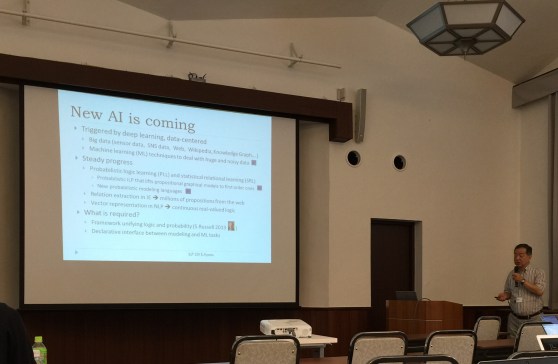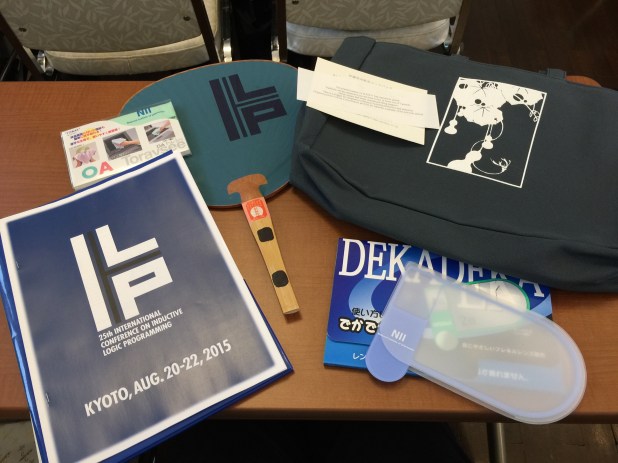J’ai soutenu mon Habilitation à Diriger des Recherches (HDR), intitulée “Contributions à l’élaboration de connaissances qualitatives en bio-informatique“, le jeudi 28 avril 2016 à 10h30 dans l’amphithéâtre S de l’Institut de Recherche en Communications et Cybernétique de Nantes (IRCCyN) devant le jury composé de :
Rapporteurs :
Gilles BERNOT, PU, Université de Nice Sophia Antipolis (I3S)
François FAGES, DR Inria, Inria Paris-Saclay
Cédric LHOUSSAINE, PU, Université de Lille 1 (LIFL)
Examinateurs :
Jérémie BOURDON, PU, Université de Nantes (LINA)
Hidde DE JONG, DR Inria, Inria Grenoble-Rhône Alpes
Denis THIEFFRY, PU, École normale supérieure (Institut de biologie)
Présidente :
Mireille RÉGNIER, DR Inria, Inria Paris-Saclay & École Polytechnique (LIX)
Garant HDR :
Olivier F. ROUX, PU, École centrale de Nantes (IRCCyN)
Manuscrit
Lien vers le manuscrit “Contributions à l’élaboration de connaissances qualitatives en bio-informatique“.
Vidéo
Slides
Lien vers les slides projetées lors de la soutenance.
Résumé
Cette synthèse pour l’HDR est un recueil de plusieurs travaux dans le domaine des méthodes formelles pour la biologie. Devant l’enjeu que représente la modélisation et l’analyse de la dynamique de réseaux de régulation biologiques à grande échelle, nous avons identifié une classe pertinente de modèles formels sur laquelle il est possible de mener des analyses efficaces de la dynamique. Après avoir discuté les différents critères de modélisation à prendre en compte en biologie, nous introduisons ainsi le formalisme des Frappes de Processus. Nous présentons ensuite les méthodes d’analyse conçues pour ce paradigme, leurs mérites et leurs limites. Enfin, nous revenons sur des résultats plus récents, consécutifs à l’établissement de liens fructueux entre l’apprentissage automatique, la programmation logique, le model-checking et la bio-informatique, ce qui nous permet de faire émerger un ensemble de nouvelles questions scientifiques.
Mots clés
réseaux de régulation biologique, modélisation, frappes de processus, analyse de la dynamique, apprentissage automatique, vérification formelles, inférence de paramètres
Summary
I defended my habilitation thesis, entitled “Contributions to the elaboration of qualitative knowledge in bioinformatics“, on Thu. 2016/04/28. This synthesis gathered several works in the field of formal methods for biology. In our works, we tackled the challenge of modeling and analyzing the dynamics of large-scale biological regulatory networks. To address this issue, we identified some relevant class of formal models on which it is possible to perform effective analysis of its dynamics. After discussing the different modeling criteria to be taken into account in biology, we introduce the Process Hitting framework. We then present the methods that we designed to analyze such models, and their respective merits and limitats. Finally, we give an overview of recent research aiming to build a fruitful link between machine learning, logic programming, model-checking and bioinformatics. This allows us to bring out a new set of scientific questions.
Keywords
biological regulatory networks, modeling, process hitting, analysis of the dynamics, machine learning, model-checking, parameters inference





























